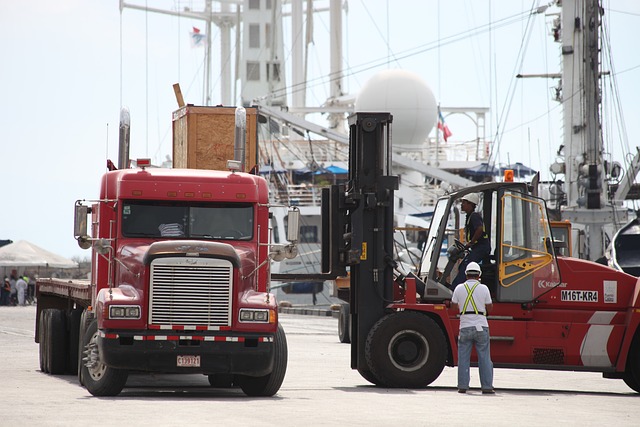SR22 insurance is a vital safety measure for new trucking operators, protecting against financial losses from liability claims related to accidents and offering strategic advantages for business longevity and asset protection. Achieving SR22 compliance involves navigating license requirements, maintaining meticulous records, implementing robust safety protocols, and staying updated on industry changes. Meticulous record-keeping, continuous learning, and embracing technology are key practices to maintain SR22 compliance in trucking.
Understanding SR22 requirements is a critical step for new trucking operators to navigate the regulatory landscape. This article delves into the intricacies of SR22, explaining its significance in ensuring safe and compliant trucking operations. We explore key requirements, from insurance mandates to documentation processes, guiding operators through the essential steps for SR22 compliance. Additionally, we emphasize the importance of regular reviews and ongoing training to stay updated, fostering a culture of safety and regulatory adherence within the trucking industry.
What is SR22 and Why Does It Matter for Trucking Operators?

SR22, or Commercial General Liability Insurance, is a vital component for new trucking operators aiming to navigate the industry with confidence and legal protection. This insurance policy safeguards against potential financial losses stemming from liability claims related to accidents involving trucks or other vehicles under their operation. It covers damages such as medical expenses, property damage, and legal fees, providing a safety net that can be crucial in an industry where risks are inherent.
For trucking operators, SR22 compliance is more than just a legal requirement; it’s a strategic move to ensure business longevity and mitigate financial risks. With the potential for costly lawsuits and claims, having adequate liability insurance is essential. It allows operators to manage risk effectively, protect their personal assets, and maintain operational continuity in case of unforeseen incidents. Understanding and adhering to SR22 requirements is a critical step for any new trucking operator aiming to establish a solid and secure foundation within the industry.
Key Requirements for SR22 Compliance

To achieve SR22 compliance, new trucking operators must grasp several key requirements that ensure safety and operational legitimacy. Primarily, this involves acquiring the necessary licenses and endorsements specific to the types of vehicles and cargo they plan to operate. Beyond licensing, maintaining meticulous records is paramount; documenting vehicle maintenance, inspections, driver hours, and trip logs are essential for transparency and regulatory adherence.
Additionally, operators must implement robust safety protocols, including regular training sessions for drivers on defense driving techniques and hazard recognition. The investment in advanced technology like telematics and monitoring systems can greatly enhance SR22 compliance by providing real-time data on vehicle performance, driver behavior, and operational efficiency, thereby facilitating timely interventions and continuous improvement.
Documentation and Record-Keeping for SR22 Adherence

For new trucking operators aiming for SR22 compliance, meticulous documentation and record-keeping are paramount. This involves maintaining detailed logs for all trips, meticulously recording vehicle maintenance records, and keeping insurance policies up-to-date. Every transaction, from fuel purchases to driver hours worked, should be accurately documented. These records not only ensure adherence to SR22 regulations but also serve as a crucial tool during audits or investigations.
The process demands organization and consistency. Using digital systems for record-keeping can streamline this task, making it easier to access and share information when needed. Regular reviews of these records are essential to identify any discrepancies or potential non-compliance issues early on, enabling operators to take corrective actions promptly.
Staying Updated: Regular Reviews and Ongoing Training

Staying updated is crucial for new trucking operators aiming for SR22 compliance. The trucking industry undergoes constant changes in regulations, safety protocols, and technology. Regular reviews of SR22 requirements are essential to ensure ongoing adherence to legal mandates. Operators should allocate time for continuous learning through workshops, webinars, or online courses that keep them informed about the latest updates.
On-going training is not just beneficial; it’s a requirement for maintaining SR22 compliance. This involves mastering new driving techniques, understanding advanced safety features in modern trucks, and learning best practices for efficient operations. By staying current, operators can enhance their skills, improve road safety, and contribute to the overall efficiency of the trucking industry.
For new trucking operators, navigating SR22 requirements is essential for operational success. Understanding this regulation ensures safe practices, minimizes risks, and fosters industry adherence. By mastering key compliance aspects, maintaining thorough documentation, and engaging in regular training, operators can confidently navigate the complexities of SR22, ultimately contributing to a safer and more efficient trucking landscape. Achieving SR22 compliance is not just a legal necessity; it’s a cornerstone for any operator aiming for excellence in their field.
